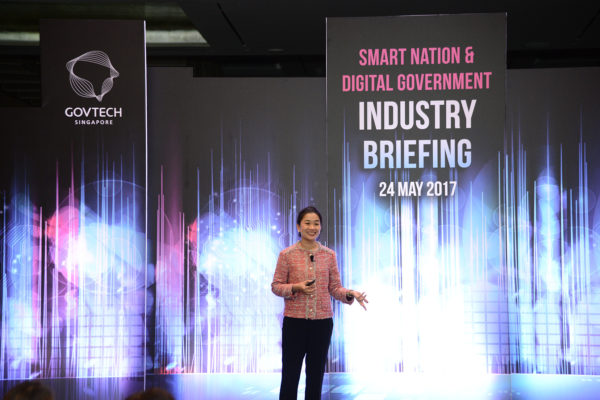
The Singapore government will give out contracts worth S$2.4 billion in the current financial year to boost efforts in smart nation and digitisation efforts in the country.
The money will be spent on national projects that include a national digital ID system, cashless payments with the monetary authorities and a smart nation sensor network.
Unveiling this yesterday, the government technology agency called GovTech said there would be a tender for data analytics and another for communications infrastructure to link up data centres and IoT (Internet-of-Things) sensors.
Robotics will be one area of focus. Temasek Polytechnic, for one, will be looking for an industry partner to build an inventory robot to scan the print collection and navigate in its library.
This will help the library carry out more and faster inventory stock-takes to boost productivity and efficiency, as well as provide early detection of missing or wrongly shelved books.
At the same time, the government is seeking to shore up defences against cyber attacks. One area it is looking to spend on is the fight against malware infiltrating its computer systems using advanced threat analytics and automation.
This year’s government infocomm technology spending is projected to be lower than last year’s, which stood at S$2.8 billion.
Speaking to attendees from the industry, GovTech chief executive Jacqueline Poh said it was looking to small and medium enterprises (SMEs) to take on some of the new jobs.
“Besides the established companies, we are glad that there is a growing pool of small and medium enterprises (SMEs) that have stepped up and embraced new technologies,” she noted. “Last year, SMEs accounted for about two-thirds of the total number of ICT contracts awarded.”
One local technology SME cited by GovTech is DC Frontiers. Since winning a contract last year from the government, it now helps analyse networks of connections between people and companies to give users insights into, among other things, legal ownership, conflicts of interest and possible fraud.
Last year, it began working with procurement and internal audit teams in the government to enhance and automate checks for conflict of interest.






